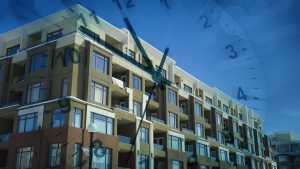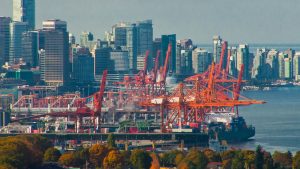VANCOUVER ÔÇö British Columbia’s latest property assessments show values remain generally flat compared to the previous year, but researchers warn the numbers don’t herald housing affordability in the famously expensive province.
BC Assessment said prices only fluctuated within a range of plus or minus three per cent in most communities, including major urban areas such as Vancouver, Victoria and Kelowna.
Average residential prices in Vancouver were down 0.8 per cent, and the only Lower Mainland communities where the values of single family homes rose by more than three per cent were Burnaby and Pemberton.
Average residential valuations dropped by two per cent in Victoria, and 2.9 per cent in Kelowna.
The assessments reflect market conditions on July 1, 2024, and were released recently.
University of British Columbia economist Thomas Davidoff said the relatively flat assessed values were not surprising, and sales numbers since July indicate some markets may have fallen lower.
“I would just emphasize that people shouldn’t be confident that their current assessment is what their home is worth because I think prices are off a bit from them,” said Davidoff, who is director of the Centre for Urban Economics and Real Estate.
“I see as much as 10 per cent (discrepancy between assessed value and prices) in my own micro market.”
Simon Fraser University City Program director Andy Yan said the assessments reflect changes in demand, and the elusiveness of affordable credit for many, even as interest rates drop.
“We might also have to add in what’s happening globally ÔǪ one sizable marketplace is Asia, and China in particular, (and) those economies have similarly gone into malaise, we similarly see a decline in demand there,” Yan said.
He said B.C. valuations were influenced by the “shifting tectonic plates of supply, demand and finance.”
BC Assessment’s numbers show average residential valuations in Metro Vancouver ranged from a drop of 1.9 per cent in Surrey to a 1.3 per cent increase in Burnaby.
There were drops on Vancouver Island of two per cent or more in Victoria and Tofino, while Duncan and Parksville saw increases of 1.8 and 1.6 per cent respectively.
Valuations were generally flat for strata homes on the island, although they rose in Courtenay and Campbell River by four and five per cent respectively, while falling in View Royal by four per cent.
Yan said flat property values do not translate to significant affordability improvement, with the ratio of income to housing costs remaining out of balance in B.C.
“I think it’s very important to define affordability,” Yan said. “Even at these values, how much are (the properties) actually, coupled with local incomes? We are far from affordability in our time.”
Looking forward, Davidoff highlighted uncertainty about the affordability impact of the incoming U.S. administration of Donald Trump and his threat of tariffs on Canadian goods.
“My best guess is no real change in prices over the next year ÔÇö and today’s asset price is always one’s best guess for tomorrow’s asset price ÔÇö but I have tremendous uncertainty (about the situation),” Davidoff said.
┬®2024 The Canadian Press











Recent Comments
comments for this post are closed